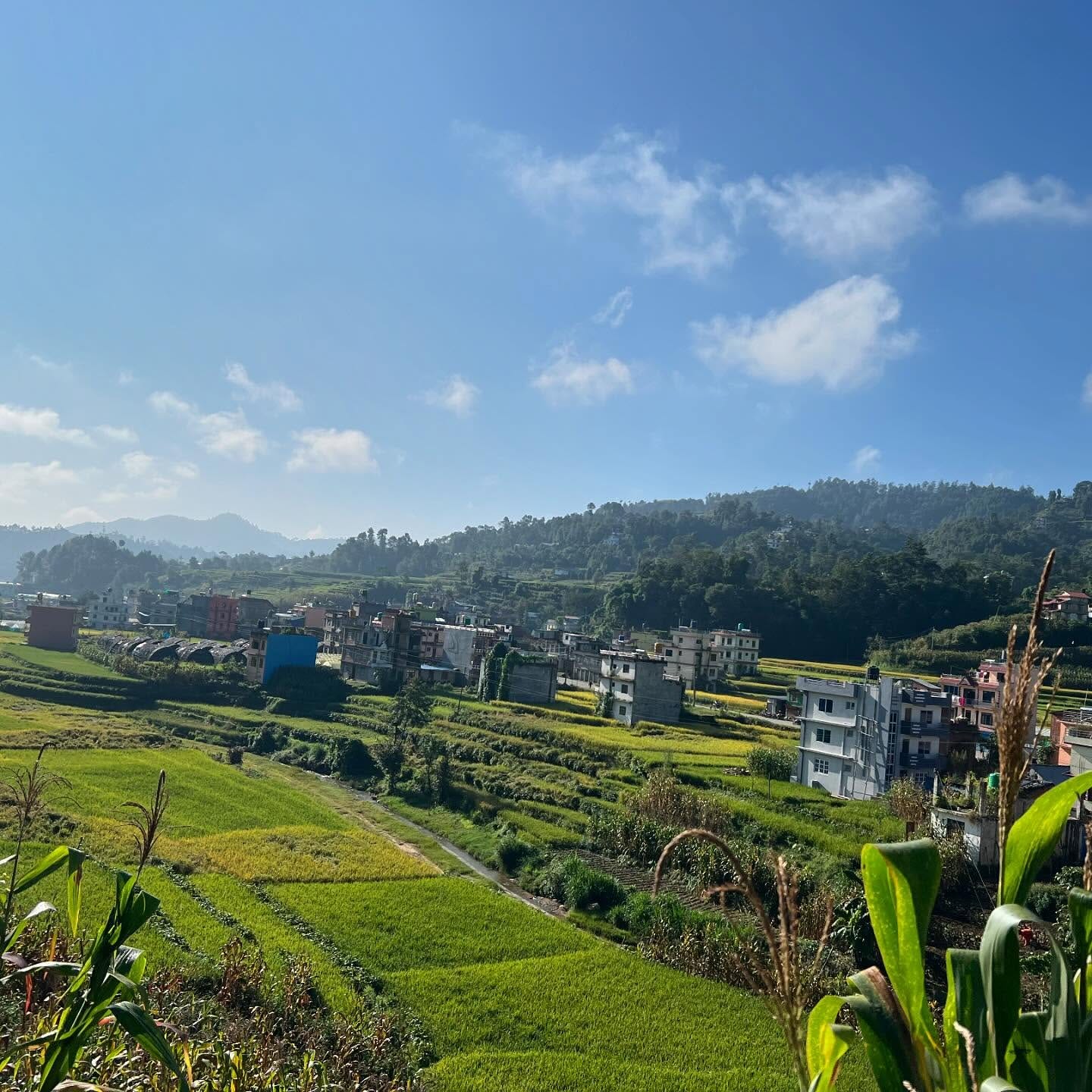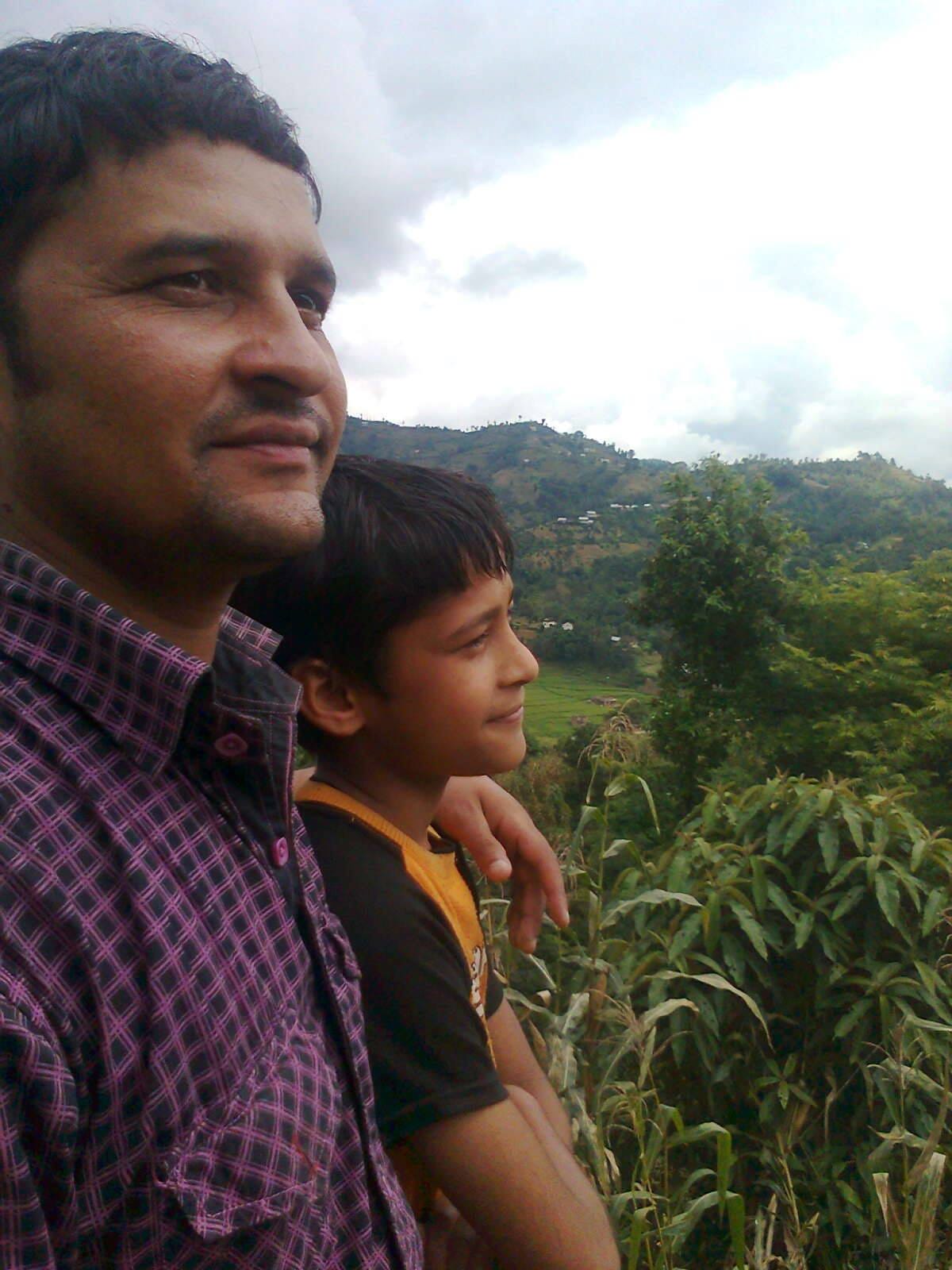The World of My Evolutionary Dads
What was my evolutionary dad up to when da Vinci was sketching airplane, when the pyramids were rising, or when Romans ruled the Europe?
Good Morning friends from a quite sunny Sunnyside in Queens, New York.
After a peaceful morning walk along the tree-lined stretch of Skillman Avenue, I am settled onto a bench at Lawrence Virgilio Playground and reading Walter Isaacson’s biography of Leonardo da Vinci—the legendary artist, designer, painter, and original thinker.
As Isaacson digs into da Vinci’s personal notebooks, he uncovers a flurry of strange and delightful questions. Some made me stop and think; others had me laughing out loud.
While our to-do lists are filled with mundane activities like grocery runs, work emails, and picking up after kids, da Vinci’s list absolutely baffled me. He wanted to figure out why birds fly slower than fish swim even though water is denser than air. His other to-do list included, study how a woodpecker’s tongue works, observe a goose’s foot, measure the size of the sun.
And most intriguingly: Go to a hot bath and see naked men on Saturdays.
Seriously, What on earth were you up to, Mr. da Vinci?
It wasn’t even that long, barely 500 years ago. That got me thinking about my own ancestor, whose genetic code still roams in my body. What was my evolutionary dad at the time doing while da Vinci was contemplating these wild thoughts? What was happening in my dad’s world?
Of course, I had to start somewhere. So, I first turned to my own Grandpa, Gobinda Prasad Bolakhe, who might give me a head start tracing my ancestry. For now, I started calculating roughly what time each of my evolutionary dad had their offspring. The idea is to get a sense of which level up dad was around during Da vinci’s time.
To start, my dad had me at 21. Pretty young by my grandpa's standard, who had my dad when he was 30. My great-grandpa, Padma Nidhi Bolakhe, had my grandpa when he was 29. And then there is my level four dad, my great-great-grandpa, who apparently fathered my great-grandpa at the age of 70! Yes! Seventy!
Grand paa says there was a whole saga of not finding a partner for a long-long time, and eventually he ended up marrying a 20 year-old girl. Sounds so gross! But let’s not go too deep into that rabbit hole.
Setting aside the outliers, that is the 70-year-olds and the teenage dads, it seems most of my fathers had their children around age 25.
Let’s try exploring the world of my grandpa first. Govinda Prasad Bolakhe was born two years after the end of World War II. But growing up in a small, landlocked country tucked away in a quiet corner of the world, he never heard much, if anything, about the war.
“No, I didn’t even know much about Hitler until much later,” he says. “As a teenager I did, however, get a chance to hear some radio buzzing around when I walked around the nearby city of Bhaktapur.”
What he does vividly remember, though, is something from the 1960s. During a teachers training workshop in Kathmandu, the organizers screened a documentary with live footage of Apollo 11’s moon landing. He still recalls watching Neil Armstrong take those famous steps on the lunar surface. That excitement, he says, did make it to his world!
With my dad being level-1 dad, grand pa being level-2 and assuming that it took about 25 years for each of my dads to have their kids, it seems like my level-20 dad might’ve been alive during da Vinci’s time.
Was he wandering the streets of my neighborhood in Kushadevi, the same town where I was born? Oh, you wish! Looks like he wasn’t even in Nepal or India, because, technically, those countries didn’t even exist yet. Back then, the land was a patchwork of regional kingdoms. So where was my 20th-level dad?
My level-20 dad’s whereabouts likely come down to his ethnicity. Being from the Bahun (or Brahman) caste means I trace my roots to Indo-Aryan speaking communities. While I couldn’t find an exact record, a quick internet search suggests that around da Vinci’s time, many of these groups were migrating from Indian regions of what is now Rajasthan, Gujarat, and Haryana into the Karnali belt of what is now western Nepal. Meanwhile, just across the Himalayan mountains in what is now China, the Ming Dynasty was busy constructing the Great Wall of China.
Growing up in a small town, I always imagined my ancestors walking the same streets, living somewhat of the similar rhythm of life as I was living. But, surely, I was way off. They likely weren’t even near this town 500 years ago.

It is also likely that my level-20 dad might have been really fluent in Sanskrit. His clan may have maintained a really good dedication to upholding cultural traditions. This could have earned recognition from the ruling elites and rich valleys. So perhaps, the Malla kings of the Kathmandu Valley began inviting them to religious ceremonies. They might have been treated as priests, keepers of ritual and knowledge.
It makes me think about the division of labor and how common that is in nature. Take a beehive for example. Some bees defend the colony, others forage for food, some nurse the young, and others clean or reproduce. Everyone has a role. So did my level-20 dad.
Okay then why stop at level-20 dad?
By the time we get to my level-100 dad, we’re talking nearly 2,500 years back in time. It was a time when the Roman Empire was rising to power in Europe, with vast territories, legions of soldiers, and emperors who were worshipped like gods. Meanwhile, on this side of the world, my evolutionary dad was probably still reciting Sanskrit hymns. It was also the time when Lord Buddha was born.
By the time of my level-200 dad, we’re in the era of the pyramids. In the Indian subcontinent, the Indus Valley Civilization was on the rise—complete with grid-like cities and baked brick homes. He might’ve woken up in one of those homes, chatted with merchants trading goods from Mesopotamia, while working in the fields of wheat and barley.
Let’s go back even further. When we reach the world of my level-400 dad. At his time, he was probably roaming the riverbeds of the Indian subcontinent as part of a hunter-gatherer tribe. Possibly, it was the beginning of proto-agriculture in the Indus-Ganga plains. Living near rivers, he may be tracking monsoons, trading tools, and telling epic stories around fire.

I might take it casually, but there is something historical happening in my genetic line at the moment. Yes, in real time. Right here. Right now. For hundreds of generations my ancestors have been basically pure breeds in a small little corner of South Asia. I am the first generation perhaps in thousands of generations of my genetic line to basically cross the continent to come to a completely new continent. This is the monumental moment that no one in my ancestral lines had a chance to experience. (It is a different matter that perhaps every genetic line is experiencing this miracle . But hey, I am allowed to celebrate mine. Haha)
When we reach the world of my level-1500 dad, he may not even have the language like the way we use it. At least not beyond some primitive form of communication. Still, it’s wild to think that his genes, through countless generations of trial, error, recombinations and the occasional overtime effort (yes, even passing genes at age 70), somehow made their way into me.
It’s a humbling thought: biology shaping identity. And in that sense, thinking about my evolutionary dad made me realize, I’m just a passenger too. Riding in this body, playing my part, selecting genes, and eventually passing this torch of life.
As Richard Dawkins once famously wrote:
“When you are dead, the genes that shaped you live on in other people… They are the replicators and we are their survival machines, robot vehicles blindly programmed to preserve them.”
Until next time..
~Saugat





This was such a fun read! My community is spread across different parts of Western and Southern India, which has given me a mixed ancestry. Tracing my ancestral roots has always interested me. I'm fascinated by how geopolitics shaped the journeys of migrating communities and how they adapted to new lands, integrating local languages, cuisines, traditions, and rituals into their own cultures. What I loved the most, though, was your comparison of your father's world to Da Vinci’s!